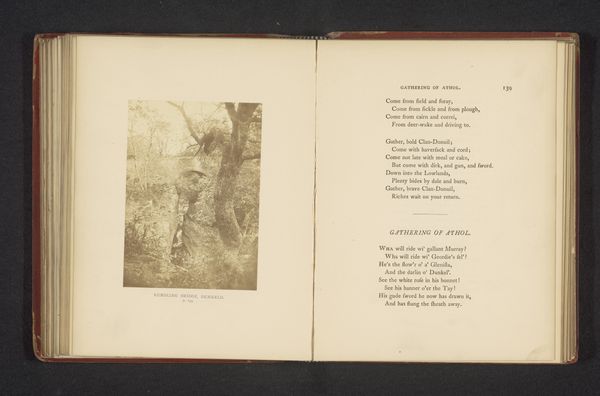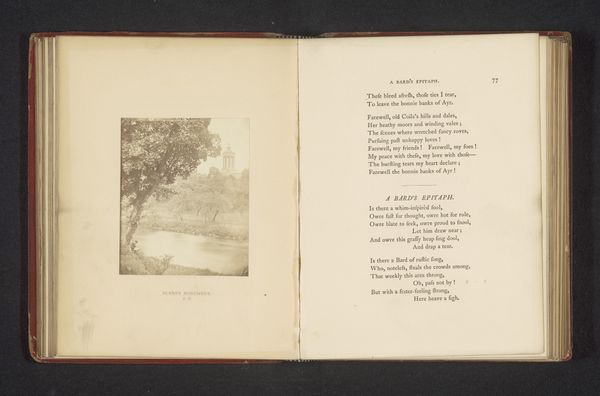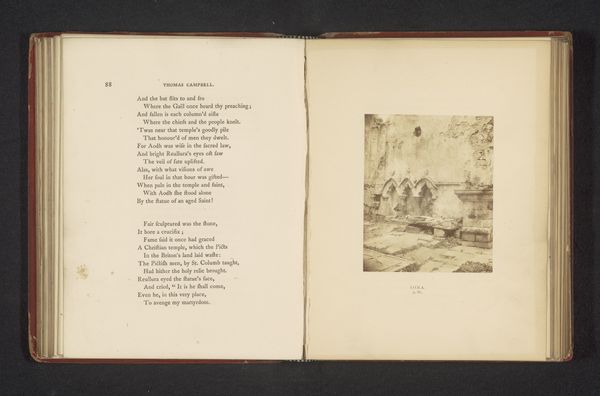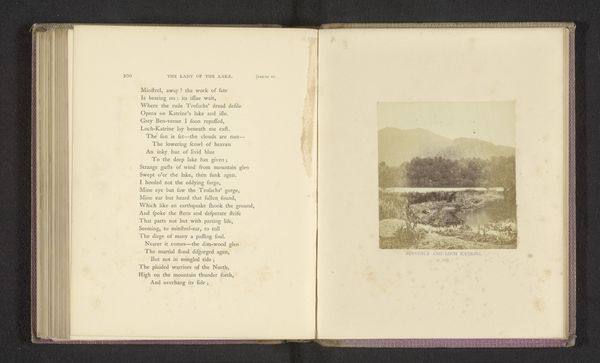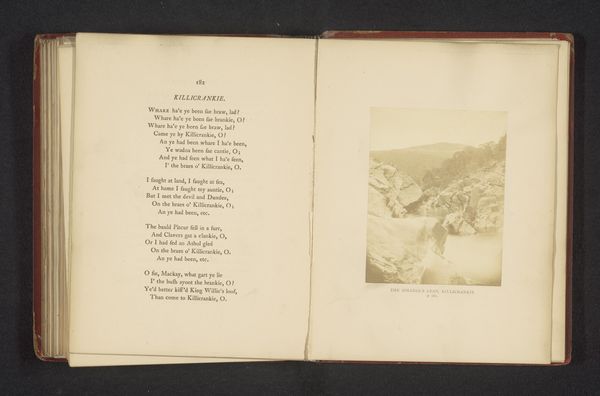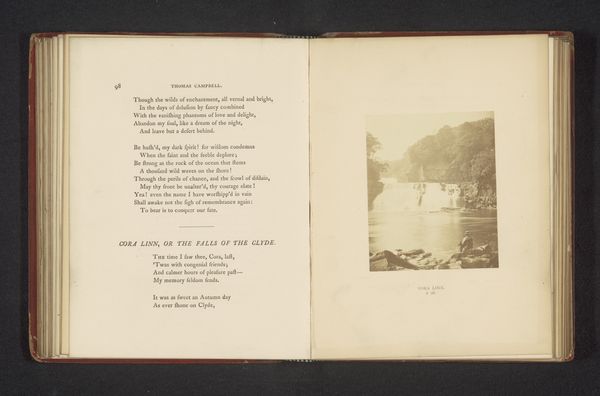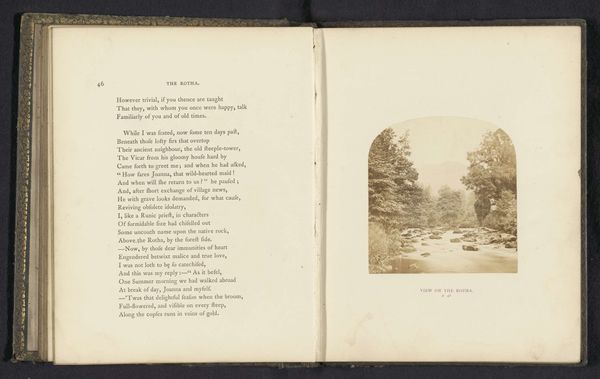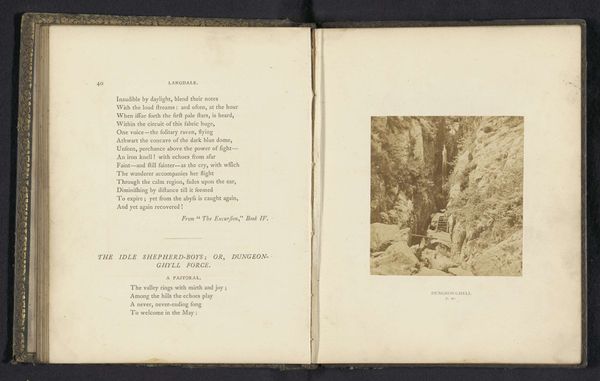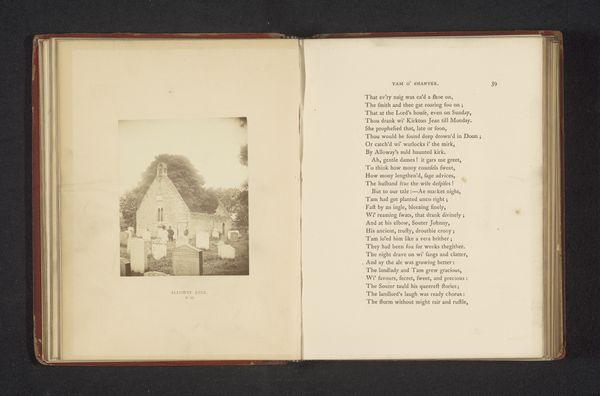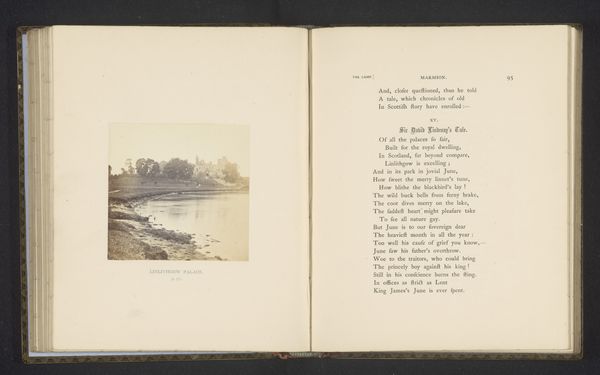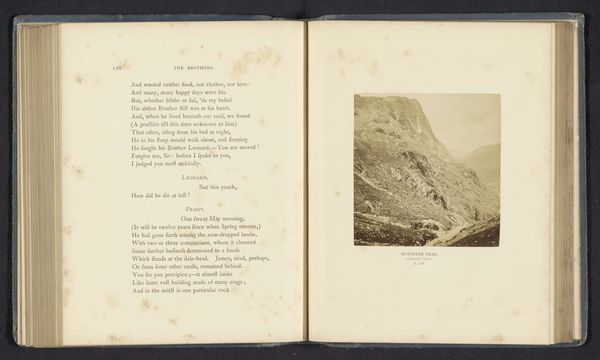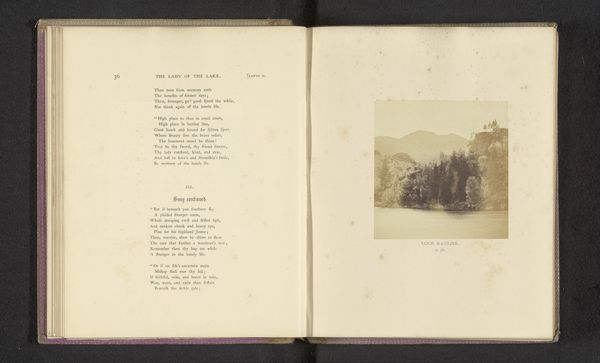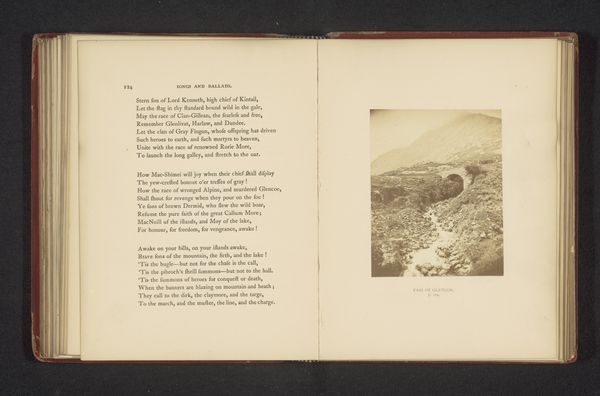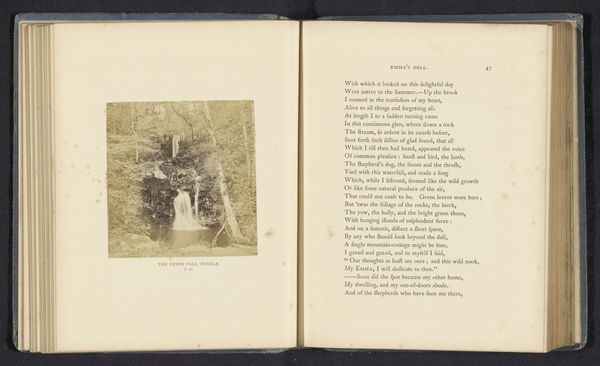
Dimensions: height 113 mm, width 81 mm
Copyright: Rijks Museum: Open Domain
Curator: So here we have "Falls of Moness, Aberfeldy", a photograph by Peter Ewing, taken before 1868. Editor: It feels melancholic. The monochrome palette mutes the power of the waterfall, almost as if shrouding it in a Victorian sense of loss. Curator: The softness comes, in part, from the early photographic processes of the time. Ewing's focus captures the romance of the Scottish landscape, fitting right into the Romantic style popular then. Think of it alongside the poetry of the time, or landscape painting! Editor: Definitely; and this photograph seems staged somehow. I'm curious about who, back then, had access to the technology to make these images, and who could journey to experience these kinds of landscapes. It strikes me as very upper-middle class. This untouched “nature” always bears the invisible mark of class and colonialism. Curator: Interesting! The image speaks volumes. It portrays the sublime power of nature through a photographic print. I keep coming back to the symbolic weight of the waterfall. Editor: Absolutely. What did it *mean* for Ewing, and also for viewers back then, to focus on capturing these “untouched” landscapes at the height of the Industrial Revolution, as populations were rapidly urbanizing and environments were being reshaped? The falls become, essentially, a visual marker of a kind of lost paradise, only now accessible through a certain cultural gaze. Curator: A shared cultural memory taking shape through the photographic lens. Editor: Right! The choice to document, the means of documentation, all shaping that memory and, ultimately, who gets to participate in the narratives attached to them. I guess what I’m suggesting is we think of “nature photography” not just as the neutral recording of something but, also, as an intervention in defining and controlling it. Curator: I think you have given me a new perspective to admire. I appreciate you bridging these art historical narratives and cultural contexts!
Comments
No comments
Be the first to comment and join the conversation on the ultimate creative platform.
